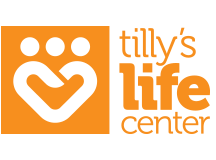
14 Apr How to Implement Social Emotional Learning at Home
In a time like this, it’s understandable to feel overwhelmed, anxious, and confused. These feelings hit even harder for teens, who are still learning to navigate challenges in their everyday lives. With schools being closed, students are cut off from their usual social interaction, and are missing out on their social emotional learning curriculums, which can really affect the way they feel about themselves, and the world.
While we’re all spending more time indoors, home learning is increasingly coming into play. It’s essential to keep up SEL practices with your teen to help them navigate this enormous change. Even when your teen is attending school, extending SEL beyond just the classroom, can have huge benefits by broadening their experiences and allowing them to learn how to navigate the real world. Here are just some of the ways you can practice social emotional learning at home.
Create Opportunities for Learning
Although it may not be obvious at first glance, there are so many things your teen is probably already doing at home that can be transformed into SEL experiences. For example, if your teen is reading a specific book or watching a TV show, use this time to talk about how this could apply to their life. What types of situations are the characters finding themselves in, and how are they responding? Are these appropriate responses? Look to resources around you for examples of conflict resolution, healthy relationships, responsible decision making, and more.
Focus on Communication
As a parent, having great communication with your teen is essential, but sometimes difficult. Use this opportunity to strengthen your connection, while also helping them to improve their social emotional skills. When having conversations with your teen, regardless of the topic, exemplify what it means to be a good listener, and to communicate your emotions effectively. Discussions between a parent and teen are personal on an even deeper level than they can get in a traditional classroom setting, making SEL at home extremely effective..
Discuss Difficult Topics
It can be hard to determine which subjects aren’t appropriate to discuss with your teen, especially during times of growing concern throughout the world. Keep them involved in your conversations, and reflect together on what’s happening around you. This helps teens practice conflict resolution, by identifying problems, forming opinions about them, and coming up with solutions. Giving your teen the ability to find their voice is extremely powerful, and something they’ll carry with them throughout their life.
Ultimately, supplementing your teen’s SEL at home creates a more dynamic environment, allowing for adaptation based on what your teen needs, rather than consistently being confined to the traditional classroom model.
Tilly’s Life Center wants to ensure our youth are provided the tools they need to address the challenges they’re being faced with. In light of the current situation, TLC is now offering virtual workshops for your teen to complete at home, so they can continue building the skills they need, now more than ever.


